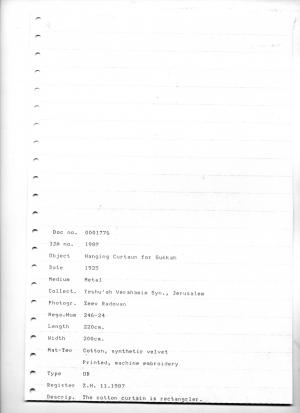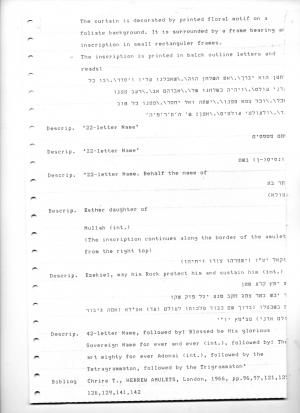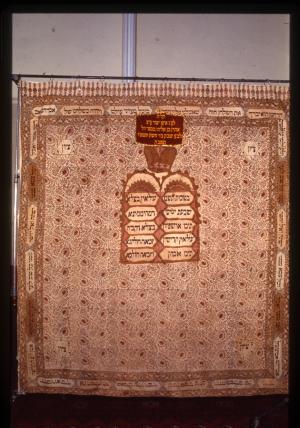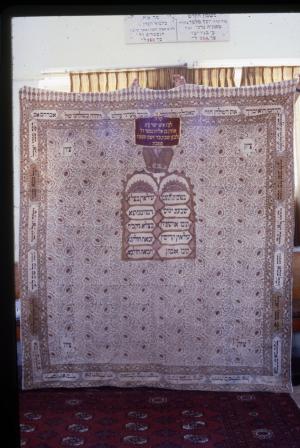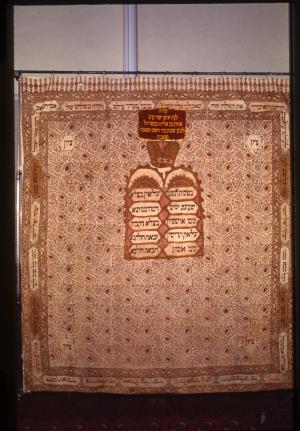Obj. ID: 22498
Sacred and Ritual Objects Sukkah cloth, Persia (?), 1955
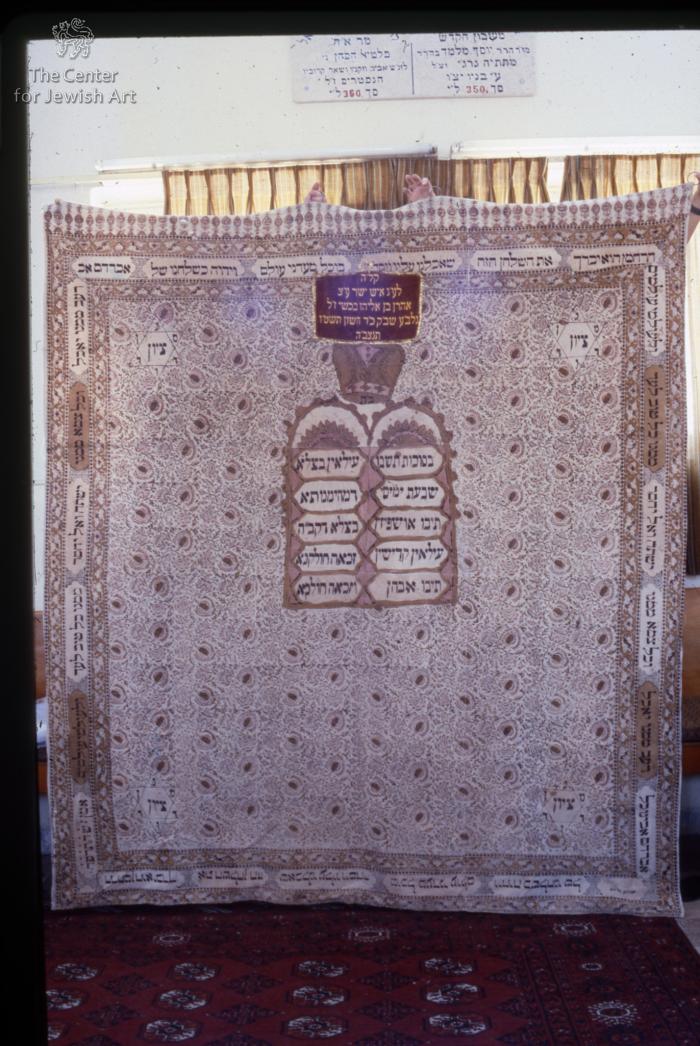
The cotton curtain is rectangular.
The curtain is decorated by a printed floral motif on a foliate background. It is surrounded by a frame bearing an inscription in small rectangular frames. The inscription is printed in black outline letters and reads:
הרחמן הוא יברך
את השלחן הזה
שאכלנו עליו ויסדר
בו כל מעדני עולם
ויהיה כשלחנו של
אברהם אב
רעב ממנו יאכל
וכל צמא ממנו
ישתה יואל יחסר
ממנו כל טוב לעד
לעולמי עולמים
אמן ש' ה'ת'ר'פ'ה
Translation: May the Merciful bless this table whereon we have eaten and seton it dainties of the world and it shall be as the table of Abraham, our father may a starving eat from it and may every thirsty from it / drink and not should fail / from it the goodness forever / and ever / Amen / the year (int.) 5685 (=1925)
The same inscription appears once more, starting from the left on the upper border with an additional sentence, written upside down:
אדפהאן ה''ד ? מ'נ'ס'ן
Translation: Adfahan ? ?
Star of David depicts the corners of the cloth bearing in its center the word:
ציון
Translation: Zion
Its triangles bear the inscription:
מדן דוד
Translation: Magen David
Tables of the Covenant decorate the center of the cloth bearing the blessing of sitting in the sukkah and the invitation of the
Divine Guests:
בסוכות תשבו
שבעת ימים
תיבו אושפיזין
עילאין קדישין
תיבו עילאין בצלא
דמהינו
בצלא דקב''ה
זכאה חולקנא
וזכאה חולכא
The Tables of the Covenant are surmounted by a Torah Crown. A dedicatory inscription appears above the Torah Crown on an additional fabric:
קל''ה [=קודש לה']
לענ [=לעילוי נשמת] איש ישר ע''צ[=ענו צדיק]
אהרן בן אליהו בכשי ז''ל
נלבע[=נפטר לבית עולמו] שב''ק[=שבת קודש] כ''ד חשון תשטז
תנצבה
Translation: Dedicated to the Lord (int.) / For the exaltation (int.) of an honest man, humble righteous (int.) / Aaron son of Elijah Bakshi, of blessed memory / passed away (int.) on holy Sabbath (int.), 24 Heshvan (5)715 (1955) / May his soul be bound up in the bond of life
sub-set tree:
printed, machine embroidery
The gabbai of the synagogue said that this curtain was brought from abroad and was dedicated to the synagogue by the sons of Aaron Bakshi.
Shachar, Feuchtwanger, 1981, fig.295


